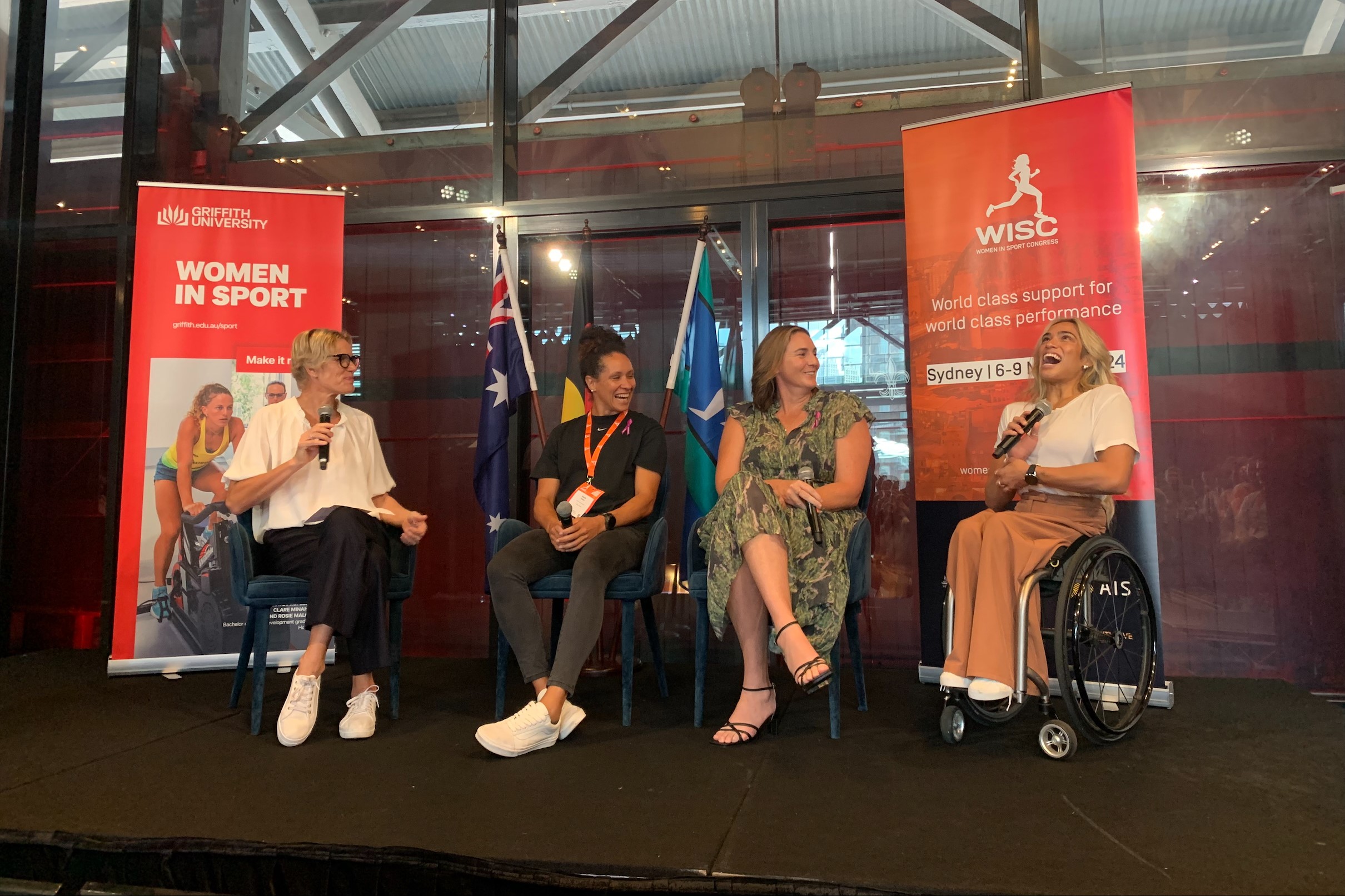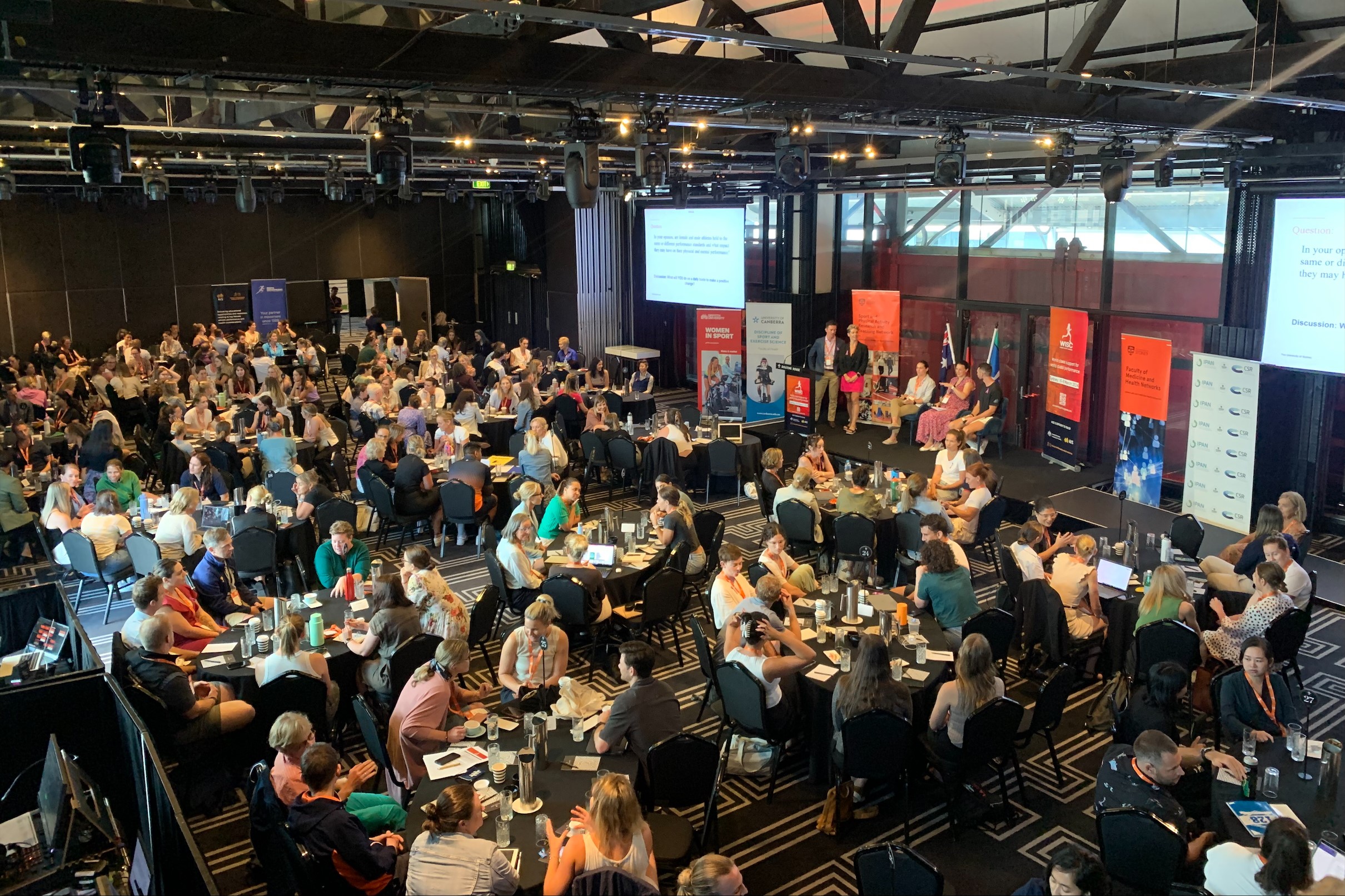11 March 2024
The second Women in Sport Congress (WISC) has wrapped in Sydney with 300 passionate and empowered delegates taking their newfound knowledge back to their communities around Australia and across the globe.

The four-day event was launched by NRL Coach Jessica Skinner and covered an array of topics relating to female performance which Dr Sophia Nimphius said could no longer be accepted at the levels they have been.
“Don’t be okay with a lower standard for women. Challenge assumptions and expectations,” Nimphius implored on International Women’s Day.
Across over 40 presentations, research covered ‘the celebrity ligament’ - the ACL, menstruation, hormones, women surfing at Tea’hupo’o, First Nations participation in women’s sport, performance demands on female athletes, concussion and many more.
As Dr Xanne Janse De Jonge explained, to knowing laughs, “we need to make sure athletes are not getting their medical advice from TikTok and YouTube."
Kamiel Maase, Performance Manager from the Netherlands Olympic Committee returned to Sydney after racing in the 2000 Olympic marathon, said there is so much room for improvement when it comes to female athletic performance.
“The female athlete is definitely on the list of urgent and important topics for Team Netherlands - because there is so much to gain,” Maase said.
“We really have not paid specific attention to specific female topics.
“9 out of 10 elite sports coaches are men. And it’s sometimes a bit of an awkward situation where it is difficult for both female athletes and the male coaches to talk- for example- about the menstrual cycle.
“So, what I’m also trying to achieve is this conversation becomes more normal- and it takes education to make this conversation more normal.”
Susanne Weber, a visiting OBGYN and sports medicine specialist who travelled from Heidelberg University in Germany suggested “you would expect all nations to have somebody of a high level attending a conference like this to get the knowledge.”
In an engaging fireside chat with Naomi McCarthy, Chair – Griffith University – Leadership & Performance, four-time Olympian Bronwen Knox and Paralympic Champion, Madison de Rozario OAM, spoke with warm praise of athletes Ash Barty and Emma McKeon who bring a gentle, kind softness to the idea of athletic greatness.
“For the longest time, if we described an athlete, we’d describe a man,” de Rozario said, also revealing how she nearly bowed out of athletics after London.
“If I had role models like Ash and Emma, I never would have had that identity-crisis in 2012,” she said.
De Rozario credited her largely female support network- spearheaded by coach, Louise Sauvage with her success since London, and described how female leadership can and should be harnessed.
“Previous leadership structures didn’t benefit women, but they also didn’t benefit men,” de Rozario said.
“Female leaders create a space for women and men to figure out who they are. It’s not just essential for women, but for men and women across the board.”
Australia’s most capped female water polo player- and Deputy Chef de Mission for Paris, Bronwen Knox spoke of formative years spent in a one-dimensional environment where female athletes were encouraged to be strong, masculine, and not allowed to cry.
The importance of having Women in High Performance Coaching was the focus of WISC’s final day, and also a topic that permeated the Congress.
The Hon Anika Wells, Minister for Sport, emphasised how “we need to diversify our coaching pool not just for fairness and equality but for success.”
Minister Wells used her keynote address on the eve of International Women’s Day to spotlight the systemic change she intends to enact.
Among 65 key Australian sports, 22% had a female CEO and 25% had a female board chair in 2023- statistics that will decrease in 2024.
“We need more Sarah Cook’s from Rowing, Sarah Walsh’s from Football, more Jen Watt’s from AFL,” Minister Wells said.
“We need more girls to enter, stay and thrive in sport and become volunteers, elite athletes, administrators, executives and coaches.”
Minister Wells signalled action is imminent.
“We need a platform to kick things off. A platform like Australian Sports’ first Gender Equity Policy. The National Gender Equity in Sports Governance Policy brings new voices into sports boardrooms in every state and territory.”
Australia’s pursuit of having the most well-supported athletes in the world continues beyond WISC through the AIS Female Performance & Health Initiative, led by Dr Rachel Harris.
“There’ve been some really wonderful organic conversations that are happening at WISC. So much passion in the room and a real sense of collaboration and a real want to make this an improved space,” Dr Harris said.
“We need to be improving the performance of female athletes if we want to have the best women athletes at the 2032 Games in this green and gold decade.”
